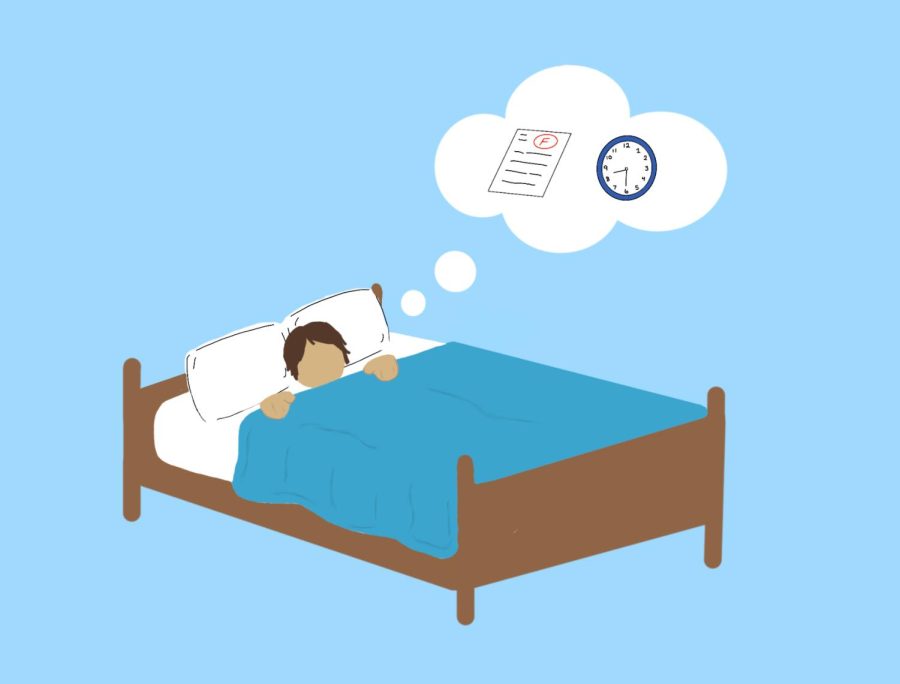Consistent Wake-Up Times Are Crucial to Teen’s Health
Getting the recommended amount of sleep each night is especially hard for students when factoring in the varying start times of our weekly schedule.
June 1, 2022
Mental health is already a recognized issue among teenagers, and with sleep being an important factor of mental health, it is as important as ever that people — especially teens — are getting not only enough sleep, but are getting sleep that follows a consistent schedule.
Unfortunately, getting consistent sleep every night can seem like an impossible task as a high schooler.
At La Salle, students can spend anywhere from five hours and 10 minutes to six hours and 40 minutes on campus, depending on that day’s schedule. And, if a student participates in sports or extracurricular activities, this time on campus can vary even more, on top of differing levels of homework depending on what courses they are enrolled in.
For students who have a zero-period class, given the current schedule, they could end up reporting for class at 7:30, 8:30, or 10:15 a.m. on any given school day. Additionally, on the weekends it is not uncommon for students to seize the opportunity to sleep in, causing students to have at least three different wake-up times during an average week.
Expecting a student to keep a consistent bedtime routine while completing all their school work just isn’t feasible, especially if they participate in extracurricular activities.
A study conducted by the University of Michigan found that a failure to get adequate and consistent sleep can affect one’s mental health, putting students at a higher risk for developing depression and anxiety disorders. And after prolonged isolation due to COVID-19, everyone’s mental health is already suffering.
These inconsistent start times are just another bump in the road for teenagers’ mental health.
Next year, it is crucial that La Salle’s bell schedule has consistent start times in order to reduce variability in student sleep schedules, especially since the COVID-19 pandemic has left students burned out.






